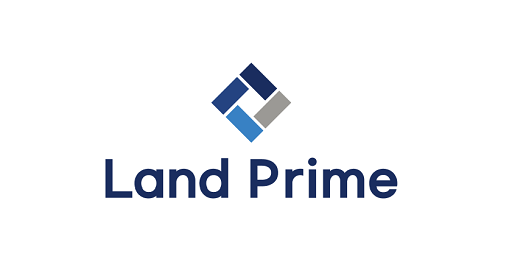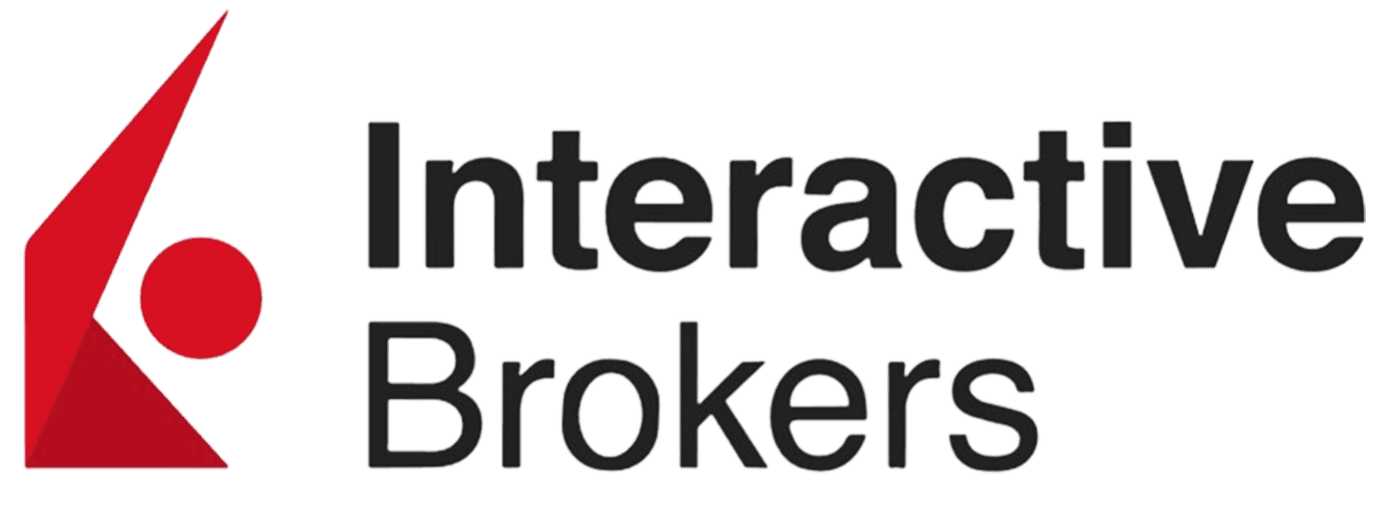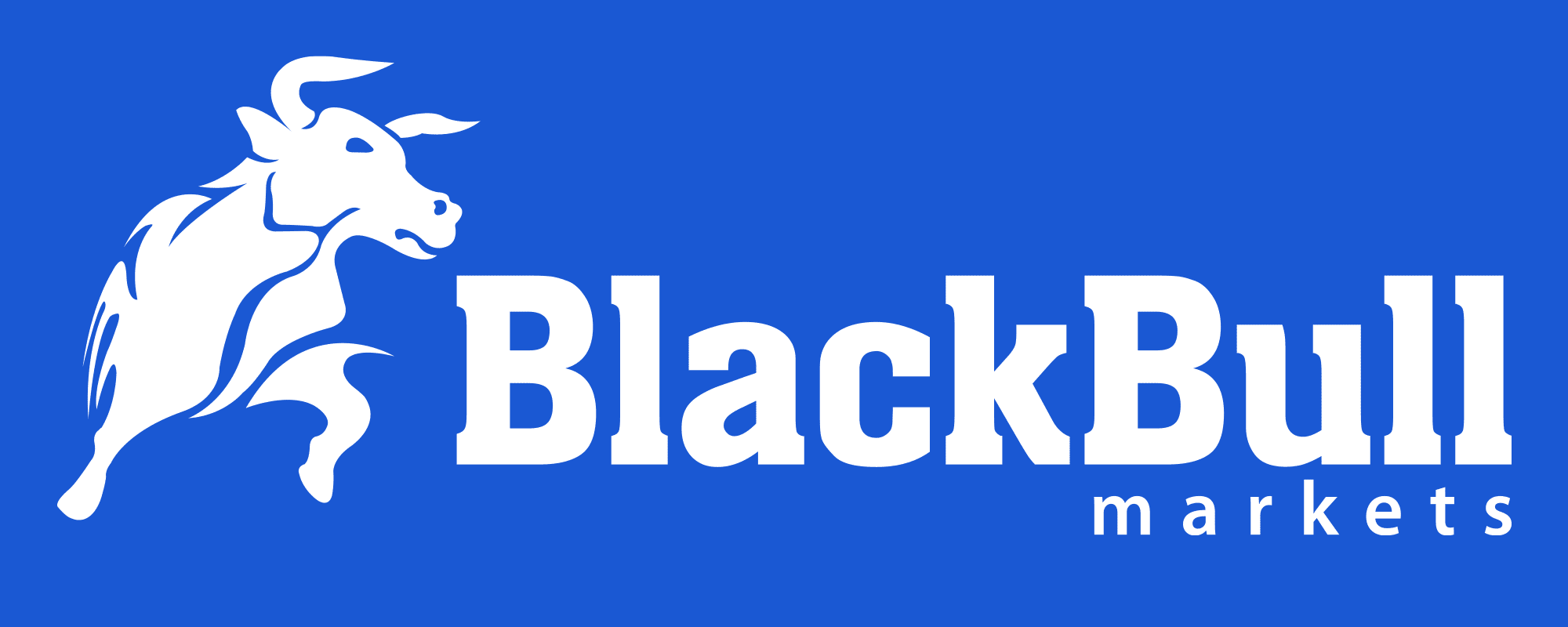Learn To Trade Forex • Best Forex Trading Course • AsiaForexMentor
Best Forex Brokers in US
With the United States’s status as the world’s largest economy, coupled with a potentially healthy market supported by the country’s large population, one would imagine that there’s a long line of US forex brokers jostling to offer brokerage services to millions of eager traders.
One would be wrong.
For one thing, traders in the US tend to gravitate more towards stock trading, often choosing to acquire shares over currencies. So, even though the New York session tends to have the most significant impact on currency rate fluctuations, the amount of US-based retail traders tends to be relatively small.
However, that’s not the most significant reason for the limited number of forex brokers in the United States. The biggest reason is that the trading environment in the US presents a series of unique challenges to brokers. The Commodity Futures Trading Commission (CFTC) and the National Futures Association (NFA), both independent bodies, tightly regulate forex brokers in the United States, enforcing rigorous restrictions that include a limit on leverage provided.
The regulations also limit US citizens’ ability to trade with brokers that are not domiciled in the country unless they’ve been registered with the NFA.
These regulations were designed to provide more security for the investments of forex traders in the US. The downside is that there’s a shortage of brokers willing or able to provide brokerage services under these conditions.
In this article, we’ve examined the forex brokers in the USA and rated them based on the value and services they offer. We’ve also included the lowdown on the US forex regulations and how they are different from what obtains elsewhere.
Top US Forex Brokers in 2023
IC Markets – Best Overall
Plus500 - Best for Beginners
HF Markets - Best for Professionals
Black Bull – Currency Trading
fpmarkets
FBS
FxPro
OANDA
Interactive Brokers – Most Trusted

- Read Review
- Read Review
- Read Review
- Read Review
- Read Review
- FreshForex
- FxPro
- FIBO Group
- HotForex
- HYCM
- OANDA
- Saxo Bank
- FXCM
- RoboMarkets
- Swissquote
- FXDD
- DeltaStock
- ActivTrades
- Admiral Markets
- NordFX
- BCS Forex
- DeltaStock
- ActivTrades
- Admiral Markets
- NordFX
- BCS Forex
- IFC Markets
- Dukascopy Europe
- Orbex
- EasyMarkets
- CMC Markets
- Octa FX
- LMFX
- ICM Capital
- PhillipCapital UK
- Hantec Markets
- Finam Forex
- Core Spreads
- Read Review
- Fort Financial Service
- BMFN
- FxGiants
- Degiro
- GO Markets
- Forex.ee
- Tickmill
- Yadix.com
- Instaforex
- etoro
- Read Review
- Swiss Markets
- PSB Forex
- ICE FX
- FriedbergDirect
- TrioMarkets
- iOCBCfx
- UOB Kay Hian
- KGI Futures
- KE Forex
- City Index Singapore
- Haitong
- FXCitizen
- Land FX
- Pepperstone
- Vantage FX
- AXITrader
- Ak Investment
- InvestAZ
- Corner Trader
- Abshire-Smith
- Abshire-Smith
| Rank | Forex Broker | Founded | Regulated | Reviews | Payment Systems | Broker Type | Min. Deposit | Max. Leverage | Live Spread Euro/USD | Deposit Bonus | Promotions | Scalping | Bank Broker | VIP accounts | Micro accounts | Cent accounts | Hedging | No deposit Bonus | ECN accounts | Swap-free accounts | Trading instruments | Accepting US traders? | Provision of VPS | STP accounts | Phone Trading | 24-hour support | Number of CFD assets | Mobile trading | Accrual of % to deposit | Trust management | Affiliate program | Country of Headquarters | Countries of offices | Deposit Currency | Trading Conditions | Mobile Trading | Auto Trading | Deposit Method | Withdrawal Method | Trading Platform | Web-based Platform | Number of currency pairs | Stock exchange instruments | Entry to Stock Exchange | Support live chat | FAQ | support language | support website language | Standarad Accounts | Segregated Accounts | Unlimited Demo | Forigen Currency accounts | OCO orders | Trailing Stop | Gauranted Stop Loss | Cashback Rebate | Self-developed trading platform | Availability of API | Autochartist support | Trading signals | Trading with expert advisers | Speed of order execution | Maximum number of trades | Maximum position size | Locked Margin level | Stop Out level | Margin Call level | Fixed Spread | Floating Spread | 4 Digit Quotes | 5 Digit Quotes | No deposit Bonus | Add to Comparison |
|---|---|---|---|---|---|---|---|---|---|---|---|---|---|---|---|---|---|---|---|---|---|---|---|---|---|---|---|---|---|---|---|---|---|---|---|---|---|---|---|---|---|---|---|---|---|---|---|---|---|---|---|---|---|---|---|---|---|---|---|---|---|---|---|---|---|---|---|---|---|---|---|---|---|
1 | Read Review | 2008 | FCA, ASIC | Yes | 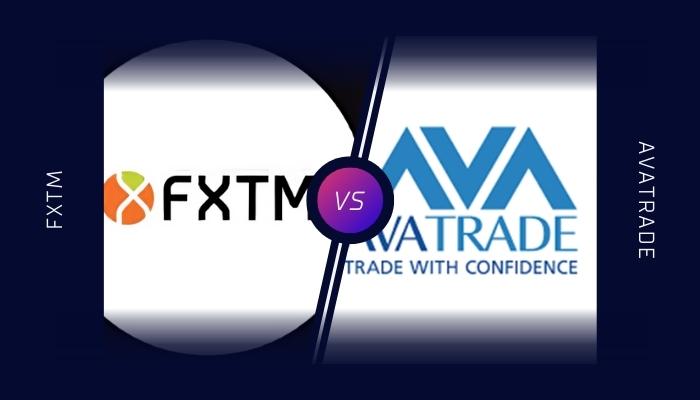 | Multi-Asset | 0 $ | 1:2000 | - | - |
FIRST DEPOSIT BONUS | Yes | - | No | No | - | Yes | - | - | - | Currency, CFD’s | Yes | No | - | Yes | - | 8700 | iOS, Android | 10 | LAMM, MAM | - | United Kingdom | UK, Cyprus, Australia, New Zealand, South Africa, Israel, Singapore, and the Seychelles | - | Trading conditions | iOS, Android | MQL.5 Signals | ["MetaTrader 4, MetaTrader 5"] | Yes | Yes | 50 | Promotions, Depositary Receipts (ADR and GDR) | Entry to stock exchanges | - | - | - | - | - | - | - | - | No | Yes | No | No | No | No | No | Yes | - | No limit | 100 лотов | 25% | 10% | 40% | spread | - | - | - | - |
Added | ||
2 | Read Review | 2014 | FCA, VFSC, FSA, FINRA, ASIC | Yes |  | - | 50 $ | 1:1000 | - | - | Yes | - | - | - | - | Yes | - | - | - | Currency, CFD’s | - | No | - | No | - | - | iOS, Android | - | PAMM | - | - | - | - | Trading conditions | iOS, Android | - | [""] | - | - | 39 | - | - | - | - | - | - | - | - | - | - | No | Yes | No | No | No | No | No | Yes | - | No limit | - | - | - | - | No | No | Yes | Yes | - |
Added | |||
3 | Read Review | 2011 | FSCA, CySEC, FSCA | Yes |  | - | 100 $ | 1:1000 | - | - | Yes | - | - | - | - | No | - | - | - | Currency, CFD’s | - | No | - | Yes | - | - | iOS, Android | 7 | - | - | - | - | - | Trading conditions | iOS, Android | - | ["MetaTrader 4, Meta Trader 4 Mobile"] | Yes | No | - | - | NASDAQ (US), NYSE (USA) | - | - | - | - | - | - | - | - | No | Yes | No | No | No | No | No | Yes | 0.001 sec. | No limit | 100 лотов | - | 20 % | 50 % | No | No | Yes | No | - |
Added | |||
4 | Read Review | 2010 | FCA, FSA | Yes |  | ECN | 1 $ | 1:3000 | N/A | 100 % | Yes | - | - | - | - | Yes | - | - | - | Currency, CFD’s | - | No | - | Yes | - | 300 | iOS, Android | - | - | - | Saint Vincent and the Grenadines | Afghanistan, Vietnam | - | Trading conditions | iOS, Android | - | ["MetaTrader 4, MetaTrader 5"] | Yes | No | 390 | Promotions, Futures | NASDAQ (US), NYSE (USA) | - | - | - | - | - | - | - | - | No | Yes | No | No | No | No | No | Yes | 0.03 sec. | No limit | 20 лотов | 50 % | 20 % | 50 % | No | No | Yes | Yes | - |
Added | |||
5 | Read Review | 1977 | FCA, CFTC | No |  | MM | 1 $ | - | N/A | - |
https://www.interactivebrokers.com/en/home.php | No | - | - | - | - | No | - | - | - | Currency, CFD’s | - | No | - | Yes | - | 400 | iOS, Android | - | - | - | USA | United Kingdom, Hong Kong | - | Trading conditions | iOS, Android | MQL.5 Signals | ["MetaTrader 4, Meta Trader 4 Mobile"] | Yes | Yes | 20 | Promotions, Futures | NASDAQ (US), CME (USA) | - | - | - | - | - | - | - | - | No | Yes | No | No | No | No | No | Yes | - | No limit | 1000 лотов | 25 % | 20 % | 50 % | No | Yes | Yes | Yes | - |
Added | ||
6 | FreshForex | 2004 | KROUFR | Yes |  | NDD, MM | 100 $ | 1:400 | - | - | No | - | - | - | - | Yes | - | - | - | Currency, CFD’s | - | No | - | No | - | - | iOS, Android | - | - | - | Russia | Saint Vincent and the Grenadines | - | Trading conditions | iOS, Android | - | ["MetaTrader 4, Meta Trader 4 Mobile"] | Yes | No | 390 | - | - | - | - | - | - | - | - | - | - | No | Yes | No | No | No | No | No | Yes | 0.3 sec. | 500 | No limit | - | 10 % | 40 % | No | No | No | Yes | - |
Added | |||
7 | FxPro | 2006 | FCA, CySEC | Yes | NDD, ECN | 0 $ | 1:50 | - | - | Yes | - | - | - | - | No | - | - | - | Currency, CFD’s | - | No | - | Yes | - | - | iOS, Android | - | - | - | United Kingdom | United Kingdom, Cyprus | - | Trading conditions | iOS, Android | - | ["MetaTrader 4, Meta Trader 4 Mobile"] | No | Yes | 390 | - | - | - | - | - | - | - | - | - | - | No | Yes | No | No | No | No | No | Yes | 0.01 sec. | No limit | 50 лотов | - | 10 % | 70 % | No | No | Yes | Yes | - |
Added | ||||
8 | FIBO Group | 1998 | FSC, CNMV | Yes |  | NDD, MM | 100 $ | 1:500 | - | - | Yes | - | - | - | - | Yes | - | - | - | Currency, CFD’s | - | No | - | No | - | 57 | iOS, Android | - | LAMM, MAM | - | Austria | - | - | Trading conditions | iOS, Android | - | ["FXCM Trading Station, MetaTrader 4"] | Yes | Yes | 37 | - | - | - | - | - | - | - | - | - | - | No | Yes | No | No | No | No | No | Yes | 0.2 sec. | No limit | - | - | 100 % | 100 % | No | Yes | No | Yes | - |
Added | |||
9 | HotForex | 2010 | CySEC, FSC | No |  | NDD | 1000 $ | 1:100 | - | - | Yes | - | - | - | - | Yes | - | - | - | Currency, CFD’s | - | No | - | No | - | 8700 | iOS, Android | - | - | - | Cyprus | Mauritius, Saint Vincent and the Grenadines | - | Trading conditions | iOS, Android | MQL.5 Signals | ["MetaTrader 4, MetaTrader 5"] | Yes | Yes | 50 | Promotions, Depositary Receipts (ADR and GDR) | NASDAQ (US), CME (USA) | - | - | - | - | - | - | - | - | No | Yes | No | No | No | No | No | Yes | - | 200 | 100 лотов | 25 % | 20 % | 100 % | No | Yes | No | Yes | - |
Added | |||
10 | HYCM | 1977 | FCA | Yes |  | MM | 250 $ | 1:50 | - | 10% | No | - | - | - | - | No | - | - | - | Currency, CFD’s | - | No | - | Yes | - | 200 | iOS, Android | - | - | - | United Kingdom | Hong Kong, Cyprus | - | Trading conditions | iOS, Android | - | ["MetaTrader 4, Advanced Trader"] | No | No | - | - | - | - | - | - | - | - | - | - | - | No | No | No | No | No | No | No | No | - | No limit | No limit | 1 % | 0 % | 0 % | No | Yes | Yes | No | - |
Added | |||
11 | OANDA | 1996 | ASIC, FCA | Yes |  | - | 100 $ | - | - | - | Yes | - | - | - | - | Yes | - | - | - | Currency, CFD’s | - | No | - | Yes | - | 95 | iOS, Android | - | - | - | USA | Australia, Bangladesh | - | Trading conditions | iOS, Android | - | ["Jforex, MetaTrader 4"] | Yes | Yes | 59 | - | - | - | - | - | - | - | - | - | - | No | Yes | No | No | No | No | No | Yes | - | - | - | - | - | - | No | Yes | Yes | No | - |
Added | |||
12 | Saxo Bank | 1992 | ASIC, FCA | No |  | ECN, STP | 100 $ | 1:400 | - | - | No | Yes | - | - | - | No | - | - | - | Currency, CFD’s | - | No | - | Yes | - | - | iOS, Android | - | - | - | Denmark | Australia, Brazil | - | Trading conditions | iOS, Android | - | ["DeltaTrader, MetaTrader 4"] | No | No | - | - | - | - | - | - | - | - | - | - | - | No | No | No | No | No | No | No | No | 0.001 sec. | No limit | No limit | - | 20 % | 50 % | No | Yes | Yes | No | - |
Added | |||
13 | FXCM | 1999 | ASIC, FCA | Yes |  | NDD | 0 $ | 1:500 | - | - | Yes | - | - | - | - | Yes | - | - | - | Currency, CFD’s | - | No | - | Yes | - | 94 | iOS, Android | - | - | - | USA | Australia, United Kingdom | - | Trading conditions | iOS, Android | - | [""] | - | - | - | - | - | - | - | - | - | - | - | - | - | No | No | No | No | No | No | No | Yes | 0.5 sec. | No limit | 100 лотов | 50 % | 30 % | 100 % | No | Yes | Yes | Yes | - |
Added | |||
14 | RoboMarkets | 2012 | CySEC | Yes |  | NDD, ECN | 0 $ | 1:1000 | - | - | Yes | - | - | - | - | Yes | - | - | - | Currency, CFD’s | - | No | - | Yes | - | 68 | iOS, Android | - | PAMM | - | Cyprus | Germany, Cyprus | - | Trading conditions | iOS, Android | MQL.5 Signals | ["MetaTrader 4, Meta Trader 4 Mobile"] | Yes | No | - | - | - | - | - | - | - | - | - | - | - | No | Yes | No | No | No | No | No | Yes | - | 100 | 1000 лотов | - | 20 % | 40 % | No | Yes | Yes | Yes | - |
Added | |||
15 | Swissquote | 1996 | FINMA | Yes |  | STP | 1 $ | 1:200 | - | - | Yes | - | - | - | - | Yes | - | - | - | Currency, Cryptocurrencies | - | No | - | Yes | - | 334 | iOS, Android | - | - | - | Switzerland | - | - | Trading conditions | iOS, Android | MQL.5 Signals | ["MetaTrader 4"] | No | No | - | Promotions, Futures | NASDAQ (US), CME (USA) | - | - | - | - | - | - | - | - | No | Yes | No | No | No | No | No | Yes | 0.005 sec. | 200 | 100 лотов | 25 % | 20 % | 100 % | No | No | Yes | Yes | - |
Added | |||
15 | FXDD | 2002 | MFSA | No |  | NDD, ECN | 0 $ | 1:400 | - | - | Yes | - | - | - | - | Yes | - | - | - | Currency, CFD’s | - | No | - | Yes | - | 500 | iOS, Android | 7 | - | - | Malta | - | - | Trading conditions | iOS, Android | - | ["MetaTrader 5, MetaTrader 5 Mobile"] | Yes | No | - | - | - | - | - | - | - | - | - | - | - | No | Yes | No | No | No | No | No | Yes | 0.01 sec. | No limit | No limit | - | 10 % | - | No | No | Yes | Yes | - |
Added | |||
16 | DeltaStock | 1998 | BNB | No |  | NDD, ECN | 100 $ | 1:300 | - | - | Yes | - | - | - | - | Yes | - | - | - | Currency, CFD’s | - | No | - | Yes | - | - | iOS, Android | - | - | - | Bulgaria | - | - | Trading conditions | iOS, Android | - | ["NetTradeX, MetaTrader 4"] | Yes | Yes | - | - | - | - | - | - | - | - | - | - | - | No | Yes | No | No | No | No | No | No | 0.4 sec. | 200 | No limit | - | 200 % | 100 % | No | No | Yes | No | - |
Added | |||
17 | ActivTrades | 2001 | FCA, CNMV | Yes |  | NDD | 0 $ | 1:40 | - | - | No | - | - | - | - | No | - | - | - | Currency, CFD’s | - | No | - | Yes | - | 34 | iOS, Android | - | - | - | Estonia | Bulgaria, United Kingdom | - | Trading conditions | iOS, Android | - | ["Jforex"] | No | No | 29 | - | - | - | - | - | - | - | - | - | - | No | No | No | No | No | No | No | Yes | 0.002 sec. | - | No limit | 50 % | 85 % | 100 % | No | Yes | No | Yes | - |
Added | |||
18 | Admiral Markets | 2001 | FCA, CNMV | No |  | NDD, ECN | 500 $ | 1:500 | - | - | Yes | - | - | - | - | Yes | - | - | - | Currency | - | No | - | Yes | - | - | iOS, Android | - | - | - | Vanuatu | - | - | Trading conditions | iOS, Android | - | [""] | - | - | - | - | - | - | - | - | - | - | - | - | - | No | Yes | No | No | No | No | No | No | - | No limit | - | - | 20 % | - | No | Yes | Yes | No | - |
Added | |||
19 | NordFX | 2008 | SEBI, VFSC | Yes |  | NDD, ECN | 10 $ | 1:200 | - | 100% | No | - | - | - | - | No | - | - | - | Currency, CFD’s | - | No | - | Yes | - | - | iOS, Android | - | - | - | Saint Vincent and the Grenadines | India, Thailand | - | Trading conditions | iOS, Android | Zulutrade | ["MetaTrader 5, MetaTrader 5 Mobile"] | Yes | No | - | - | - | - | - | - | - | - | - | - | - | No | Yes | No | No | No | No | No | Yes | 0.1 sec. | - | 50 лотов | 50 % | 20 % | - | No | Yes | No | Yes | - |
Added | |||
20 | BCS Forex | 2006 | MFSA | No |  | NDD, ECN | 100 $ | 1:300 | - | - | Yes | - | - | - | - | Yes | - | - | - | Currency | - | No | - | Yes | - | 2000 | iOS, Android | - | - | - | Malta | - | - | Trading conditions | iOS, Android | - | ["MetaTrader 4, Meta Trader 4 Mobile"] | No | No | 59 | - | - | - | - | - | - | - | - | - | - | No | Yes | No | No | No | No | No | Yes | - | No limit | - | - | - | - | No | Yes | Yes | No | - |
Added | |||
21 | DeltaStock | 1998 | BNB | No |  | NDD, ECN | 1 $ | 1:5000 | - | - | No | - | - | - | - | No | - | - | - | Currency, CFD’s | - | No | - | No | - | - | iOS, Android | - | PAMM | - | Bulgaria | - | - | Trading conditions | iOS, Android | - | [""] | No | No | 109 | - | - | - | - | - | - | - | - | - | - | No | Yes | No | No | No | No | No | No | - | - | 1000 лотов | - | 10 % | 30 % | Yes | No | Yes | No | - |
Added | |||
22 | ActivTrades | 2001 | FCA, CNMV | Yes |  | NDD | 0 $ | 1:200 | - | - | No | - | - | - | - | Yes | - | - | - | Currency, CFD’s | - | No | - | No | - | 100 | iOS, Android | 3 | PAMM | - | Estonia | Bulgaria, United Kingdom | - | Trading conditions | iOS, Android | - | [""] | Yes | Yes | 101 | Promotions, Futures | NASDAQ (US), LSE (United Kingdom) | - | - | - | - | - | - | - | - | No | Yes | No | No | No | No | No | No | 0.09 sec. | - | No limit | 5 % | 50 % | 100 % | Yes | No | Yes | No | - |
Added | |||
23 | Admiral Markets | 2001 | FCA, CNMV | No |  | NDD, ECN | 1 $ | 1:400 | - | - | Yes | - | - | - | - | Yes | - | - | - | Currency, CFD’s | - | No | - | Yes | - | - | iOS, Android | - | - | - | Vanuatu | - | - | Trading conditions | iOS, Android | - | ["MetaTrader 4"] | Yes | Yes | - | - | - | - | - | - | - | - | - | - | - | No | Yes | No | No | No | No | No | Yes | - | - | - | - | - | - | No | Yes | No | No | - |
Added | |||
24 | NordFX | 2008 | SEBI, VFSC | Yes |  | NDD, ECN | 100 $ | 1:400 | - | 100% | No | - | - | - | - | No | - | - | - | - | - | No | - | No | - | - | iOS, Android | - | - | - | Saint Vincent and the Grenadines | India, Thailand | - | Trading conditions | iOS, Android | - | ["MetaTrader 4"] | Yes | No | - | - | - | - | - | - | - | - | - | - | - | No | No | No | No | No | No | No | No | - | - | - | - | - | - | Yes | Yes | No | No | - |
Added | |||
25 | BCS Forex | 2006 | FSA | No |  | NDD, ECN | 250 $ | 1:200 | - | 50% | No | Yes | - | - | - | No | - | - | - | - | - | No | - | No | - | 1500 | iOS, Android | - | - | - | Cyprus | - | - | Trading conditions | iOS, Android | - | ["MetaTrader 4"] | Yes | Yes | 46 | - | - | - | - | - | - | - | - | - | - | No | No | No | No | No | No | No | Yes | - | - | 50 лотов | 50 % | 30 % | 30 % | Yes | Yes | Yes | Yes | - |
Added | |||
26 | IFC Markets | 2006 | FSC, CySEC | No |  | STP | 0 $ | 1:500 | - | - | Yes | - | - | - | - | Yes | - | - | - | Currency, CFD’s | - | No | - | No | - | 10042 | iOS, Android | - | - | - | Latvia | Latvia | - | Trading conditions | iOS, Android | - | ["MetaTrader 4, Meta Trader 4 Mobile"] | Yes | Yes | 389 | - | - | - | - | - | - | - | - | - | - | No | Yes | No | No | No | No | No | Yes | - | 200 | - | - | - | - | No | No | No | Yes | - |
Added | |||
27 | Dukascopy Europe | 2010 | FCMC | No |  | ECN | 100 $ | 1:500 | - | - | No | - | - | - | - | No | - | - | - | Currency, CFD’s | - | No | - | No | - | 44 | iOS, Android | - | - | - | Russia | - | - | Trading conditions | iOS, Android | - | ["CMC Next Generation"] | Yes | Yes | 27 | - | - | - | - | - | - | - | - | - | - | No | Yes | No | No | No | No | No | Yes | 0.1 sec. | - | - | - | 15 % | 25 % | No | Yes | No | Yes | - |
Added | |||
28 | Orbex | 2014 | VFSC | Yes |  | ECN, STP | 50 $ | 1:1000 | - | - | Yes | - | - | - | - | Yes | - | - | - | Currency, CFD’s | - | No | - | No | - | 92 | iOS, Android | - | - | - | Cyprus | Australia, China | - | Trading conditions | iOS, Android | - | ["cTrader, MetaTrader 4"] | Yes | No | 47 | - | - | - | - | - | - | - | - | - | - | No | Yes | No | No | No | No | No | Yes | - | - | 100 лотов | - | 15 % | 30 % | No | Yes | No | Yes | - |
Added | |||
29 | EasyMarkets | 2001 | ASIC, CySEC | Yes |  | MM | 200 $ | 1:200 | - | - | Yes | - | - | - | - | Yes | - | - | - | Currency, CFD’s | - | No | - | No | - | 49 | iOS, Android | - | MAM | - | United Kingdom | Hungary, Germany | - | Trading conditions | iOS, Android | - | ["MetaTrader 4, Meta Trader 4 Mobile"] | Yes | No | 32 | - | - | - | - | - | - | - | - | - | - | No | Yes | No | No | No | No | No | Yes | - | - | - | - | - | - | No | No | No | Yes | - |
Added | |||
30 | CMC Markets | 1989 | ASIC, FCA | Yes |  | NDD, STP | 1000 $ | 1:200 | - | - | Yes | - | - | - | - | Yes | - | - | - | Currency, CFD’s | - | No | - | No | - | 80 | iOS, Android | - | MAM | - | Saint Vincent and the Grenadines | United Kingdom | - | Trading conditions | iOS, Android | - | ["MetaTrader 4, Meta Trader 4 Mobile"] | Yes | No | 42 | - | - | - | - | - | - | - | - | - | - | No | Yes | No | No | No | No | No | Yes | - | 500 | - | - | 20 % | - | No | Yes | Yes | No | - |
Added | |||
31 | Octa FX | 2011 | FCA, FSA | Yes | 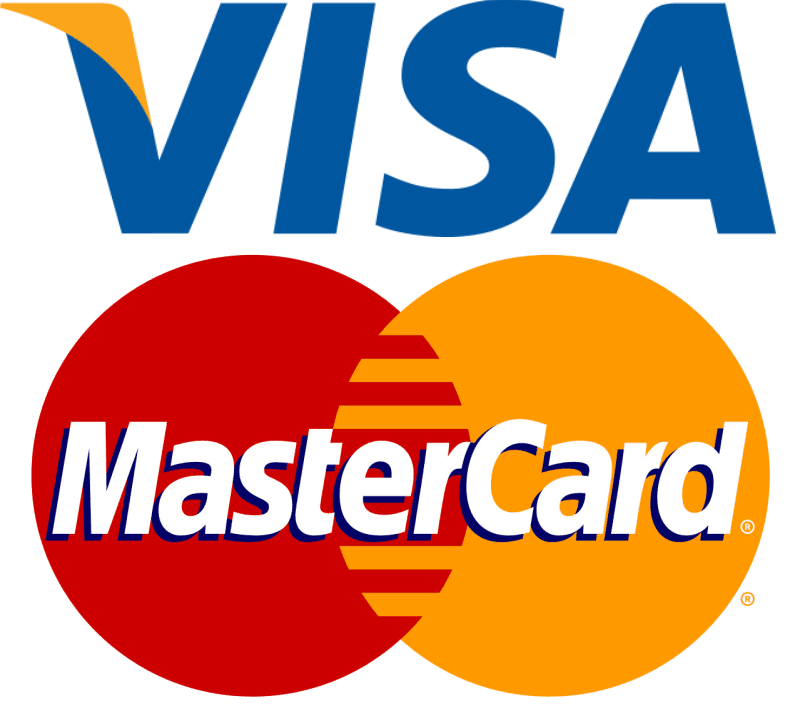 | ECN | 0 $ | 1:200 | - | 50 % | Yes | - | - | - | - | Yes | - | - | - | Currency, CFD’s | - | No | - | No | - | 3000 | iOS, Android | 14 | - | - | USA | USA | - | Trading conditions | iOS, Android | - | ["MetaTrader 4, Meta Trader 4 Mobile"] | Yes | No | 30 | Promotions, Futures | NASDAQ (US), NYSE (USA) | - | - | - | - | - | - | - | - | No | Yes | No | No | No | No | No | Yes | - | - | - | 50 % | 30 % | 30 % | No | Yes | Yes | No | - |
Added | |||
32 | LMFX | 2015 | - | Yes |  | NDD | 100 $ | 1:400 | - | - | Yes | - | - | - | - | Yes | - | - | - | Currency, CFD’s | - | No | - | No | - | 200 | iOS, Android | - | PAMM | - | United Kingdom | China, Mauritius | - | Trading conditions | iOS, Android | - | ["MetaTrader 4, MetaTrader 5"] | Yes | Yes | 47 | - | - | - | - | - | - | - | - | - | - | No | Yes | No | No | No | No | No | Yes | - | - | - | - | 10 % | 10 % | No | Yes | Yes | No | - |
Added | |||
33 | ICM Capital | 2009 | - | Yes |  | NDD | 1 $ | 1:240 | - | - | No | - | - | - | - | No | - | - | - | Currency, CFD’s | - | No | - | No | - | 1605 | iOS, Android | - | - | - | United Kingdom | Australia | - | Trading conditions | iOS, Android | - | ["CoreTrader, MetaTrader 4"] | Yes | Yes | 33 | - | - | - | - | - | - | - | - | - | - | No | Yes | No | No | No | No | No | Yes | - | - | - | - | 20 % | 20 % | No | No | No | Yes | - |
Added | |||
34 | PhillipCapital UK | 1975 | ASIC, FCA | No |  | NDD | 5 $ | 1:1000 | - | - | Yes | - | - | - | - | Yes | - | - | - | Currency, CFD’s | - | No | - | No | - | * | iOS, Android | 5 | - | - | United Kingdom | Hong Kong, United Arab Emirates | - | Trading conditions | iOS, Android | - | ["MetaTrader 4, NinjaTrader"] | Yes | No | 35 | Promotions | NASDAQ (US), CME (USA) | - | - | - | - | - | - | - | - | No | Yes | No | No | No | No | No | Yes | 0.1 sec. | - | 100 лотов | - | 10 % | 30 % | No | No | Yes | Yes | - |
Added | |||
35 | Hantec Markets | 2009 | FCA | Yes | - | NDD | 0 $ | 1:400 | - | - | Yes | - | - | - | - | Yes | - | - | - | Currency, CFD’s | - | No | - | No | - | 90 | iOS, Android | - | LAMM, MAM | - | Russia | Russia | - | Trading conditions | iOS, Android | - | ["MetaTrader 4, Meta Trader 4 Mobile"] | Yes | No | 22 | Funds (ETF) | - | - | - | - | - | - | - | - | - | No | Yes | No | No | No | No | No | No | - | - | - | - | 100 % | 110 % | No | Yes | Yes | Yes | - |
Added | |||
36 | Finam Forex | 1994 | CBR, NAFD | No |  | NDD, DMA | 50 $ | 1:500 | - | - | Yes | Yes | - | - | - | Yes | - | - | - | Currency, CFD’s | - | No | - | No | - | 250 | iOS, Android | - | MAM | - | Ireland | Australia, Germany | - | Trading conditions | iOS, Android | - | ["MetaTrader 4, Meta Trader 4 Mobile"] | Yes | No | 389 | - | - | - | - | - | - | - | - | - | - | No | No | No | No | No | No | No | Yes | 0.01 sec. | - | 80 лотов | - | 20 % | 40 % | No | No | No | Yes | - |
Added | |||
37 | Core Spreads | 2014 | FCA | Yes |  | NDD | 0 $ | - | - | 50 % | No | - | - | - | - | No | - | - | - | CFD’s, Exchange | - | No | - | No | - | 100 | iOS, Android | - | - | - | United Kingdom | - | - | Trading conditions | iOS, Android | - | ["DEGIRO WebTrader"] | Yes | Yes | - | Promotions, Futures | NASDAQ (US), CME (USA) | - | - | - | - | - | - | - | - | No | No | No | No | No | No | No | Yes | - | - | - | - | - | - | No | Yes | Yes | No | - |
Added | |||
38 | Read Review | 2012 | CySEC, FSA | Yes |  | - | - | - | - | - |
50% DEPOSIT BONUS | Yes | - | - | - | - | Yes | - | - | - | Currency, CFD’s | - | No | - | - | - | - | - | - | - | - | - | - | - | - | - | - | [""] | - | - | - | - | - | - | - | - | - | - | - | - | - | No | Yes | No | No | No | No | No | Yes | - | - | - | - | - | - | - | - | - | - | - |
Added | ||
39 | Fort Financial Service | 2010 | IFSC | No | - | NDD, ECN | 200 $ | 1:300 | - | 50 % | Yes | - | - | - | - | Yes | - | - | - | Currency, CFD’s | - | No | - | No | - | 67 | iOS, Android | - | - | - | Belize | Malaysia | - | Trading conditions | iOS, Android | - | ["MetaTrader 4, Meta Trader 4 Mobile"] | Yes | No | 43 | - | - | - | - | - | - | - | - | - | - | No | Yes | No | No | No | No | No | Yes | - | - | - | - | 20 % | 80 % | Yes | No | No | Yes | - |
Added | |||
40 | BMFN | 1988 | ASIC, FCA | No |  | NDD, DMA | - | 1:500 | - | 20 % | Yes | - | - | - | - | Yes | - | - | - | Currency, Cryptocurrencies | - | No | - | No | - | 51 | iOS, Android | - | PAMM | - | United Kingdom | Australia, Bulgaria | - | Trading conditions | iOS, Android | - | ["MetaTrader 4, Meta Trader 4 Mobile"] | Yes | No | 45 | - | - | - | - | - | - | - | - | - | - | No | Yes | No | No | No | No | No | Yes | - | - | - | - | 15 % | 30 % | No | No | Yes | Yes | - |
Added | |||
41 | FxGiants | 2015 | ASIC, FCA | Yes |  | ECN, STP | 10 $ | 1:500 | - | 20 % | Yes | - | - | - | - | Yes | - | - | - | Currency, CFD’s | - | No | - | No | - | 84 | iOS, Android | - | - | - | Cyprus | Cyprus | - | Trading conditions | iOS, Android | - | ["MetaTrader 4"] | Yes | No | 62 | - | - | - | - | - | - | - | - | - | - | No | Yes | No | No | No | No | No | Yes | 0.1 sec. | - | - | - | 30 % | 100 % | No | Yes | Yes | No | - |
Added | |||
42 | Degiro | 2008 | BaFin | Yes |  | NDD | 25 $ | 1:500 | - | - | Yes | - | - | - | - | Yes | - | - | - | Currency, CFD’s | - | No | - | No | - | 77 | iOS, Android | - | MAM | - | Bulgaria | Netherlands | - | Trading conditions | iOS, Android | - | ["MetaTrader 4, Meta Trader 4 Mobile"] | No | No | 56 | - | - | - | - | - | - | - | - | - | - | No | Yes | No | No | No | No | No | Yes | - | - | - | - | 50 % | 100 % | No | No | No | Yes | - |
Added | |||
43 | GO Markets | 2006 | ASIC | No | - | NDD | 100 $ | 1:400 | - | - | Yes | - | - | - | - | Yes | - | - | - | Currency, CFD’s | - | No | - | No | - | 4600 | iOS, Android | - | - | - | Australia | - | - | Trading conditions | iOS, Android | - | ["MetaTrader 4, Meta Trader 4 Mobile"] | Yes | Yes | 63 | - | - | - | - | - | - | - | - | - | - | No | Yes | No | No | No | No | No | Yes | - | 200 | - | - | 50 % | 80 % | No | Yes | No | Yes | - |
Added | |||
44 | Forex.ee | 2004 | FSA | No |  | NDD, ECN | 250 $ | 1:500 | - | 15 % | No | - | - | - | - | No | - | - | - | - | - | No | - | No | - | - | iOS, Android | - | PAMM, MAM | - | Saint Vincent and the Grenadines | - | - | Trading conditions | iOS, Android | - | [""] | No | No | - | - | - | - | - | - | - | - | - | - | - | No | No | No | No | No | No | No | No | - | 5 | - | - | - | - | Yes | Yes | No | Yes | - |
Added | |||
45 | Tickmill | 2014 | FCA, SIBA | Yes |  | NDD | 100 $ | 1:500 | - | - | Yes | - | - | - | - | Yes | - | - | - | Currency, CFD’s | - | No | - | No | - | - | - | - | PAMM | - | Seychelles | United Kingdom | - | Trading conditions | - | - | ["MetaTrader 4"] | Yes | Yes | 389 | - | -- | - | - | - | - | - | - | - | - | No | Yes | No | No | No | No | No | Yes | - | - | 350 лотов | 100 % | 20 % | 100 % | No | Yes | No | No | - |
Added | |||
46 | Yadix.com | - | - | - |  | - | 200 $ | 1:40 | - | - | No | - | - | - | - | Yes | - | - | - | Currency | - | No | - | No | - | 17 | iOS, Android | - | - | - | - | - | - | Trading conditions | iOS, Android | - | ["MetaTrader 5, MetaTrader 5 Mobile"] | Yes | No | 17 | - | - | - | - | - | - | - | - | - | - | No | Yes | No | No | No | No | No | No | - | - | 10 лотов | - | 50 % | 45 % | No | Yes | No | Yes | - |
Added | |||
47 | Instaforex | - | - | - | - | - | 1500 $ | 1:300 | - | - | Yes | - | - | - | - | Yes | - | - | - | Currency, CFD’s | - | No | - | No | - | 63 | iOS, Android | - | PAMM, MAM | - | - | - | - | Trading conditions | iOS, Android | - | ["MetaTrader 4"] | No | No | 3 | - | - | - | - | - | - | - | - | - | - | No | Yes | No | No | No | No | No | Yes | - | - | 1000 лотов | 50 % | 50 % | 100 % | No | Yes | No | Yes | - |
Added | |||
48 | etoro | - | - | - |  | - | 30 $ | 1:33 | - | - | No | - | - | - | - | No | - | - | - | Currency, CFD’s | - | No | - | No | - | 200 | iOS, Android | - | - | - | - | - | - | Trading conditions | iOS, Android | - | ["FXCM Trading Station"] | Yes | No | 36 | - | - | - | - | - | - | - | - | - | - | No | Yes | No | No | No | No | No | No | - | - | 500 лотов | - | 25 % | 90 % | No | Yes | No | Yes | - |
Added | |||
49 | Read Review | 2018 | CySEC, FCA | Yes |  | - | 0 $ | 1:1000 | - | - |
50% DEPOSIT BONUS | Yes | - | - | - | - | Yes | - | - | - | Currency, CFD’s | - | No | - | Yes | - | 200 | iOS, Android | 13 | PAMM | - | - | - | - | Trading conditions | iOS, Android | - | ["MetaTrader 4, MetaTrader 5"] | Yes | No | 390 | - | - | - | - | - | - | - | - | - | - | No | Yes | No | No | No | No | No | Yes | 0.1 sec. | - | - | 50% | 50% | 50% | No | Yes | Yes | No | - |
Added | ||
50 | Swiss Markets | 2012 | CySEC | Yes |  | STP | 0 $ | 1:300 | - | - | Yes | - | - | - | - | Yes | - | - | - | Currency, CFD’s | - | No | - | No | - | 101 | iOS, Android | - | PAMM, MAM | - | Germany | Cyprus | - | Trading conditions | iOS, Android | - | ["MetaTrader 4, Meta Trader 4 Mobile"] | Yes | No | 49 | - | - | - | - | - | - | - | - | - | - | No | Yes | No | No | No | No | No | Yes | - | - | - | - | 30 % | 200 % | Yes | No | Yes | No | - |
Added | |||
51 | PSB Forex | 2016 | CBR, NAFD | No | - | NDD | 500 $ | 1:35 | - | - | Yes | Yes | - | - | - | Yes | - | - | - | Currency, CFD’s | - | No | - | No | - | 500 | iOS, Android | - | - | - | Malaysia | - | - | Trading conditions | iOS, Android | - | ["iOCBC"] | Yes | Yes | 35 | - | - | - | - | - | - | - | - | - | - | No | Yes | No | No | No | No | No | No | - | - | - | - | 30 % | 100 % | No | Yes | Yes | No | - |
Added | |||
52 | ICE FX | 2015 | - | No | - | STP | 1000 $ | 1:50 | - | 100 % | No | - | - | - | - | No | - | - | - | Currency, CFD’s | - | No | - | No | - | - | iOS, Android | - | - | - | Canada | Cyprus | - | Trading conditions | iOS, Android | - | ["MetaTrader 4, UTRADE FX Elite"] | Yes | Yes | 34 | Bonds, Depositary Receipts (ADR and GDR) | NYSE (USA), LSE (United Kingdom) | - | - | - | - | - | - | - | - | No | Yes | No | No | No | No | No | No | - | - | - | - | 20 % | 100 % | No | Yes | Yes | No | - |
Added | |||
53 | FriedbergDirect | 2008 | IIROC | No | - | NDD, STP | 0 $ | 1:50 | - | - | Yes | - | - | - | - | Yes | - | - | - | Currency, Exchange | - | No | - | No | yes | 127 | iOS, Android | - | - | - | Cyprus | Germany | - | Trading conditions | iOS, Android | - | ["CQG Trader"] | Yes | Yes | 11 | Promotions, Futures | CME (USA), NYSE (USA) | yes | yes | English, Chinese | English, Chinese | - | - | - | - | No | Yes | No | No | No | No | No | No | - | - | - | - | 20 % | 100 % | No | Yes | Yes | No | - |
Added | |||
54 | TrioMarkets | 2014 | CySEC | Yes | - | ECN, STP | 1000 $ | 1:50 | - | - | Yes | - | - | - | - | Yes | - | - | - | Currency, CFD’s | - | No | - | No | yes | 1000 | iOS, Android | - | - | - | Singapore | - | - | Trading conditions | iOS, Android | - | ["Currenex Classic, KE Trade"] | Yes | Yes | 44 | Promotions, Futures | CME (USA), NYSE (USA) | yes | yes | English | English | - | - | - | - | No | Yes | No | No | No | No | No | No | - | - | - | - | 30 % | 100 % | No | Yes | Yes | No | - |
Added | |||
55 | iOCBCfx | 2004 | MAS | No | - | NDD | 0 $ | 1:50 | - | - | Yes | Yes | - | - | - | Yes | - | - | - | Currency, CFD’s | - | No | - | No | yes | 4500 | iOS, Android | - | - | - | Singapore | - | - | Trading conditions | iOS, Android | - | ["MetaTrader 4, AT Pro"] | Yes | Yes | 58 | - | - | yes | yes | English | English | -- | - | - | - | No | Yes | No | No | No | No | No | Yes | - | 500 | - | - | 30 % | 100 % | No | Yes | No | No | - |
Added | |||
56 | UOB Kay Hian | 2000 | MAS | No | - | NDD | 100 $ | 1:50 | - | - | Yes | - | - | - | - | Yes | - | - | - | Currency, CFD’s | - | No | - | No | yes | 100 | iOS, Android | - | - | - | Singapore | United Kingdom, Hong Kong | - | Trading conditions | iOS, Android | - | ["MetaTrader 4, Currenex Classic"] | Yes | No | 6 | - | - | yes | yes | English, Chinese | English, Chinese | - | - | - | - | No | Yes | No | No | No | No | No | Yes | - | - | - | - | 50 % | 100 % | No | Yes | Yes | No | - |
Added | |||
57 | KGI Futures | 2001 | MAS | No | - | NDD | 0 $ | 1:1000 | - | - | Yes | - | - | - | - | Yes | - | - | - | Currency | - | No | - | No | yes | 38 | iOS, Android | - | - | - | Singapore | China | - | Trading conditions | iOS, Android | - | ["MetaTrader 4, Meta Trader 4 Mobile"] | Yes | No | 35 | - | - | yes | yes | English, Chinese | English, Chinese | - | - | - | - | No | Yes | No | No | No | No | No | Yes | - | - | - | - | 30 % | 100 % | No | Yes | Yes | Yes | - |
Added | |||
58 | KE Forex | 1972 | MAS | No |  | NDD | 0 $ | 1:500 | - | - | No | - | - | - | - | No | - | - | - | - | - | No | - | No | yes | - | iOS, Android | - | - | - | Singapore | - | - | Trading conditions | iOS, Android | Zulutrade | [""] | Yes | No | - | - | - | yes | yes | English, Arab | English, Vietnamese | - | - | - | - | No | No | No | No | No | No | No | No | - | - | - | - | - | - | Yes | Yes | No | No | - |
Added | |||
59 | City Index Singapore | 2006 | MAS | No |  | MM | 300 $ | 1:400 | - | - | Yes | - | - | - | - | Yes | - | - | - | Currency, CFD’s | - | No | - | No | yes | 93 | iOS, Android | - | MAM | - | Singapore | Australia, United Kingdom | - | Trading conditions | iOS, Android | Zulutrade | ["MetaTrader 4, cTrader"] | Yes | No | 31 | - | - | yes | yes | English, Russian | English, Arab | - | - | - | - | No | Yes | No | No | No | No | No | Yes | - | - | - | - | 20 % | 90 % | No | No | No | Yes | - |
Added | |||
60 | Haitong | 2010 | MAS | No |  | NDD, ECN | 200 $ | 1:500 | - | - | Yes | Yes | - | - | - | Yes | - | - | - | Currency, CFD’s | - | No | - | No | yes | 56 | iOS, Android | - | PAMM, MAM | - | Singapore | - | - | Trading conditions | iOS, Android | Zulutrade | ["MetaTrader 4, MetaTrader 5"] | Yes | No | 38 | - | - | yes | yes | English | English, Vietnamese | - | - | - | - | No | Yes | No | No | No | No | No | Yes | - | - | - | - | 50 % | 80 % | No | No | No | Yes | - |
Added | |||
61 | FXCitizen | 2010 | VFSC | No | - | NDD, ECN | 200 $ | 1:400 | - | - | Yes | - | - | - | - | Yes | - | - | - | Currency, CFD’s | - | No | - | No | yes | 134 | iOS, Android | - | MAM | - | Belize | - | - | Trading conditions | iOS, Android | - | ["MetaTrader 4"] | Yes | No | 83 | - | - | yes | yes | English | English, Arab | - | - | - | - | No | Yes | No | No | No | No | No | Yes | - | - | - | - | 20 % | 90 % | No | No | No | Yes | - |
Added | |||
62 | Land FX | 2013 | FCA, FSCS | No | - | NDD, ECN | 0 $ | 1:100 | - | 10 % | Yes | - | - | - | - | Yes | - | - | - | Currency, Exchange | - | No | - | No | yes | 100 | iOS, Android | - | - | - | United Kingdom | Egypt, Indonesia | - | Trading conditions | iOS, Android | - | ["TradeAll"] | Yes | Yes | 28 | Futures, Promotions | NASDAQ (US), NYMEX (USA) | yes | yes | English, Turkish | English, Turkish | - | - | - | - | No | Yes | No | No | No | No | No | No | - | 1000 | - | - | 50 % | 100 % | Yes | No | Yes | No | - |
Added | |||
63 | Pepperstone | 2010 | ASIC | Yes | - | ECN | 1000 $ | 1:1000 | - | - | Yes | - | - | - | - | Yes | - | - | - | Currency, CFD’s | - | No | - | No | yes | 99 | iOS, Android | - | - | - | Australia | China, USA | - | Trading conditions | iOS, Android | - | ["MetaTrader 4, MetaTrader 5"] | Yes | Yes | 44 | - | - | yes | yes | Azerbaijani, English | Azerbaijani, English | - | - | - | - | No | Yes | No | No | No | No | No | Yes | - | - | - | - | 20 % | 40 % | No | No | No | Yes | - |
Added | |||
64 | Vantage FX | 2009 | ASIC | Yes | - | ECN | 100 $ | 1:200 | - | - | No | - | - | - | - | No | - | - | - | Currency, CFD’s | - | No | - | No | yes | 1000 | iOS, Android | - | - | - | Australia | - | - | Trading conditions | iOS, Android | - | ["Cornu00e8rTrader"] | Yes | Yes | 28 | Promotions, Futures | NASDAQ (US), NYSE (USA) | yes | yes | English, Italian | English, Italian | - | - | - | - | No | Yes | No | No | No | No | No | No | - | - | - | - | 50 % | 100 % | No | No | Yes | No | - |
Added | |||
65 | AXITrader | 2007 | ASIC, FCA | Yes | - | NDD | 1 $ | 1:200 | - | - | Yes | - | - | - | - | Yes | - | - | - | Currency, CFD’s | - | No | - | No | yes | - | iOS, Android | - | - | - | Australia | United Kingdom, United Arab Emirates | - | Trading conditions | iOS, Android | - | ["MetaTrader 4, Vortex MT"] | Yes | No | 20 | Promotions, Futures | NASDAQ (US), NYSE (USA) | yes | yes | English, Arab | English, Arab | - | - | - | - | No | Yes | No | No | No | No | No | Yes | - | - | - | - | 5 % | 5 % | Yes | No | No | Yes | - |
Added | |||
66 | Ak Investment | 1996 | SPK | No | - | NDD, DMA | 500 $ | 1:500 | - | - | Yes | - | - | - | - | Yes | - | - | - | Currency, CFD’s | - | No | - | No | yes | - | iOS, Android | - | MAM | - | Turkey | - | - | Trading conditions | iOS, Android | - | ["MetaTrader 4, Meta Trader 4 Mobile"] | Yes | No | 51 | - | - | yes | yes | English, Deutsch | English, Arab | - | - | - | - | No | Yes | No | No | No | No | No | Yes | - | - | - | - | - | 100 % | No | Yes | Yes | No | - |
Added | |||
67 | InvestAZ | 2010 | FSP, SPK | No |  | ECN | 0 $ | 1:100 | - | - | Yes | - | - | - | - | Yes | - | - | - | Currency, CFD’s | - | No | - | No | yes | - | iOS, Android | - | - | - | New Zealand | - | - | Trading conditions | iOS, Android | - | [""] | Yes | Yes | 35 | - | - | yes | yes | English | English, Chinese | - | - | - | - | No | Yes | No | No | No | No | No | Yes | - | - | - | - | - | 100 % | No | Yes | No | Yes | - |
Added | |||
68 | Corner Trader | 2012 | FINMA | No | - | MM | 100 $ | 1:400 | - | - | Yes | - | - | - | - | Yes | - | - | - | Currency, CFD’s | - | No | - | No | - | 56 | iOS, Android | - | - | - | Switzerland | - | - | Trading conditions | iOS, Android | - | ["MetaTrader 4, Meta Trader 4 Mobile"] | Yes | No | 27 | - | - | yes | yes | English | English | - | - | - | - | No | Yes | No | No | No | No | No | Yes | - | - | - | - | - | 100 % | No | Yes | Yes | No | - |
Added | |||
69 | Abshire-Smith | 2011 | FCA, FSCS | No | - | STP, DMA | 0 $ | 1:100 | - | - | Yes | - | - | - | - | Yes | - | - | - | Currency, CFD’s | - | No | - | No | - | 47 | iOS, Android | - | - | - | United Kingdom | - | - | Trading conditions | iOS, Android | - | ["MetaTrader 5, MetaTrader 5 Mobile"] | Yes | No | 32 | - | - | - | - | - | - | - | - | - | - | No | Yes | No | No | No | No | No | Yes | - | - | - | - | 20 % | 100 % | No | Yes | Yes | Yes | - |
Added | |||
70 | Abshire-Smith | 2011 | FCA, FSCS | No | - | STP, DMA | - | - | - | - |
https://www.abshire-smith.com/ | yes | - | - | - | - | yes | - | - | - | - | - | - | - | Yes | - | - | iOS, Android | - | - | - | United Kingdom | - | - | - | iOS, Android | - | - | - | - | - | - | - | - | - | - | - | - | - | - | - | - | - | - | - | - | - | - | - | - | - | - | - | - | - | - | - | - | - | - |
Added |
Best US Forex Brokers
#1 IC Markets
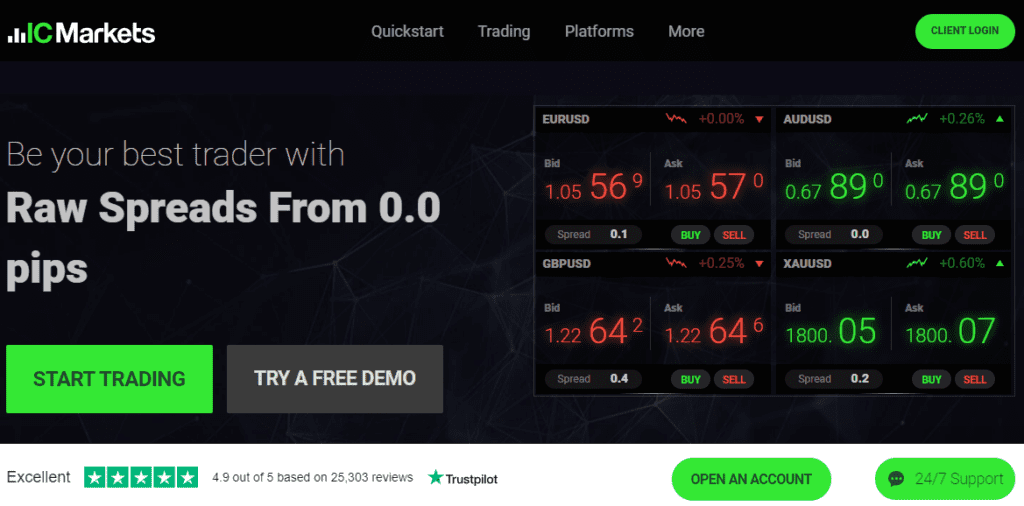
Founded in 2007, IC Markets (International Capital Markets) is one of the largest Forex brokers in Australia, offering access to a broad spectrum of markets to traders globally. The broker is known for its high-speed trade execution, tight spreads, and a diverse range of trading products including Forex, commodities, indices, bonds, futures, and cryptocurrencies.
IC Markets provides its clients with a choice of three major trading platforms: MetaTrader 4, MetaTrader 5, and cTrader, all of which are available on web, desktop, and mobile interfaces. These platforms cater to different trading preferences and come equipped with advanced charting tools, numerous technical indicators, and automated trading capabilities.
The broker is regulated by multiple top-tier financial authorities such as the Australian Securities and Investments Commission (ASIC), the Seychelles Financial Services Authority (FSA), and the Cyprus Securities and Exchange Commission (CySEC), which assures traders of a safe and transparent trading environment.
IC Markets also places a strong emphasis on education and provides a wealth of resources, including video tutorials, webinars, and market analysis to help traders improve their skills and stay updated on market trends.
Advantages
- An extensive list of instruments and currency pairs
- Offers favorable trading conditions with low spreads
- Offers several analytical training materials and mobile trading options
- Traders can easily engage in hedging and scalping
- Additional resources like risk depth, risk calculator, and spread monitoring are available.
- Top-notch customer service
Disadvantages
- No trade executions on weekends
- It does not offer automated trading services
- May experience a delay in payments for a couple of days
Withdrawal And Fees Of IC Markets
One of the key strengths of IC Markets is its competitive and transparent pricing structure. The broker offers two types of accounts: Standard and Raw Spread. The Standard account incorporates all fees into the spread, while the Raw Spread account charges a commission but offers spreads from zero pips, which can result in significant savings for active traders.
There are no fees for depositing funds into your IC Markets account, and the broker covers most of the transaction costs associated with withdrawals. However, international bank transfers can attract a small charge by some banks, which is something to keep in mind.
In terms of non-trading fees, IC Markets does not charge any account inactivity or maintenance fees, which is a plus for traders who may not trade regularly.
It’s always a good idea to review the current fee structure directly on the broker’s website or through their customer service to ensure that you have the most up-to-date information.
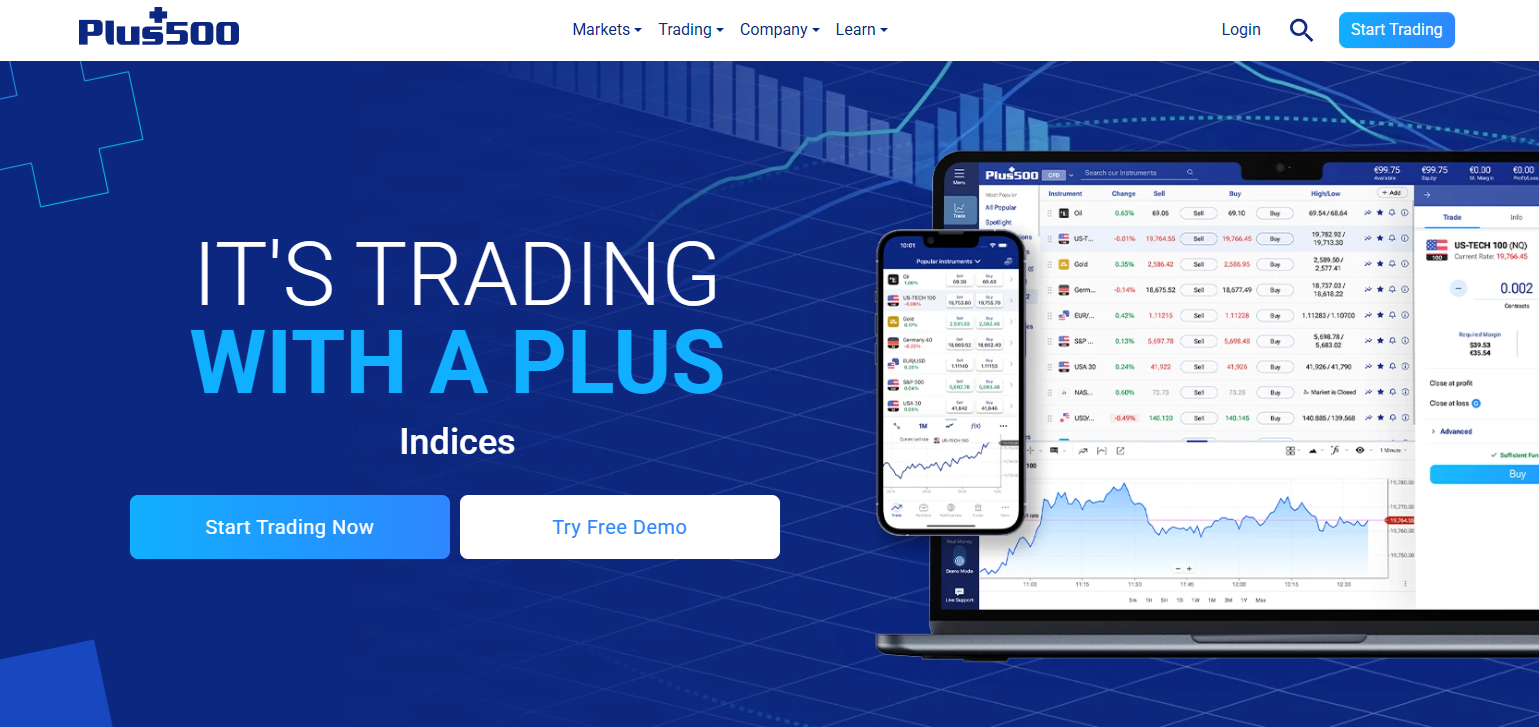
Plus500 is a global fintech firm offering a proprietary trading platform that provides U.S. clients access to futures contracts across various asset classes, including forex, indices, commodities, bonds, and cryptocurrencies. The platform is user-friendly and available on web, desktop, and mobile devices, catering to both novice and experienced traders. In the U.S., Plus500 operates through its subsidiary, Cunningham Commodities, LLC, which is authorized and regulated by the Commodity Futures Trading Commission (CFTC) and the National Futures Association (NFA), ensuring compliance with stringent regulatory standards. The company's commitment to a low minimum deposit of $100, competitive commissions, and absence of inactivity fees makes it an attractive choice for traders seeking a reliable and cost-effective brokerage service.
In the U.S., Plus500 charges a commission fee of $0.49 per Micro contract and $0.89 per Standard contract per side for futures trading. Additionally, there is an Auto-Liquidation fee of $10 per contract. Traders are also subject to an NFA Regulatory Fee of $0.02 per side per contract, along with exchange execution and clearing fees for non-members, which vary depending on the specific exchange. Notably, Plus500 does not impose market data, routing, or inactivity fees, contributing to its competitive fee structure.
Advantages
- No additional charges beyond the spread
- Intuitive interface for both beginners and experienced traders
- Licensed by top financial authorities ensuring reliability
- Offers CFDs on forex, stocks, commodities, and cryptocurrencies
Disadvantages
- Lacks in-depth fundamental analysis resources
- Does not integrate with MT4 or MT5
- Charges $10 per month after three months of no login
- No access to traditional stock or ETF ownership
Withdrawal And Fees Of Plus500
Plus500 offers multiple withdrawal methods, including bank transfers, credit/debit cards, and electronic wallets like PayPal and Skrill. Withdrawal requests are typically processed within 1-3 business days, during which the company conducts necessary security checks. The time it takes for funds to reach your account depends on the chosen withdrawal method and the processing times of the respective financial institutions. For instance, bank transfers may take 5-7 business days, while electronic wallet withdrawals are usually completed within 3-7 business days.
Plus500 does not charge fees for deposits and withdrawals, covering most payment processing costs. However, certain conditions may incur charges: if a withdrawal is below the minimum amount specified for the chosen method, a $10 fee may apply; exceeding five withdrawals per month can also result in a $10 fee for each additional transaction. Additionally, if your account remains inactive (i.e., no login activity) for three months, a monthly inactivity fee of up to $10 will be levied. It's important to note that while Plus500 covers most processing fees, some charges may be imposed by your payment provider or bank, especially in cases of international transactions or currency conversions.
#3 HF Markets
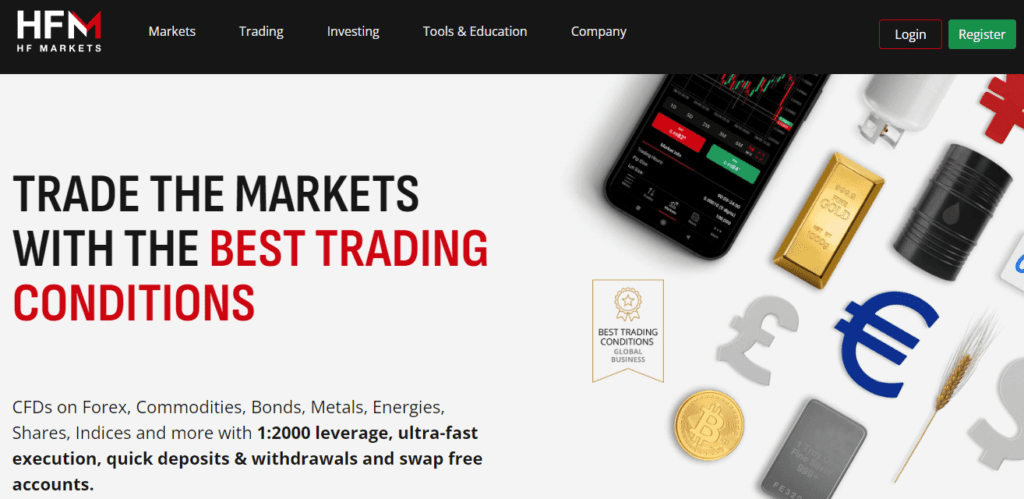
HF Markets, more commonly known as HotForex, is a multi-asset broker that has been providing trading services since 2010. This award-winning broker is well-recognized in the forex industry and offers trading services to both retail and institutional clients.
HF Markets provides a broad range of trading instruments including forex, commodities, indices, shares, bonds, and cryptocurrencies. They offer multiple account types to cater to different trading preferences and levels of experience, from Micro accounts for beginners to Zero Spread accounts for experienced traders looking for tighter spreads.
One of the strengths of HF Markets is their investment in trading technology. They offer both MetaTrader 4 and MetaTrader 5 platforms, along with a variety of tools such as the HF App, Premium Trader Tools, and Autochartist to aid in efficient trading. The broker is regulated by several top-tier regulatory bodies including the Financial Conduct Authority (FCA) in the UK, the Dubai Financial Services Authority (DFSA), and the Cyprus Securities and Exchange Commission (CySEC).
HF Markets also places a strong emphasis on trader education and support, offering an array of resources such as webinars, video tutorials, and market analysis to assist traders in their trading journey.
Advantages
- Multiple regulatory licenses, ensuring a safe trading environment
- A variety of account types catering to different trading styles
- Competitive spreads and low trading fees
- Extensive educational resources and market analysis
- User-friendly trading platforms, including MetaTrader 4 and 5
- Favorable trading conditions and low spreads - from 0 pips
- No commissions for account replenishment and bank transfers
Disadvantages
- Limited product range compared to some competitors
- No proprietary trading platform
- Customer support is closed on weekends
- Withdrawal terms do not always correspond to those indicated
Withdrawal And Fees Of HF Markets
One of the key strengths of IC Markets is its competitive and transparent pricing structure. The broker offers two types of accounts: Standard and Raw Spread. The Standard account incorporates all fees into the spread, while the Raw Spread account charges a commission but offers spreads from zero pips, which can result in significant savings for active traders.
There are no fees for depositing funds into your IC Markets account, and the broker covers most of the transaction costs associated with withdrawals. However, international bank transfers can attract a small charge by some banks, which is something to keep in mind.
In terms of non-trading fees, IC Markets does not charge any account inactivity or maintenance fees, which is a plus for traders who may not trade regularly.
It’s always a good idea to review the current fee structure directly on the broker’s website or through their customer service to ensure that you have the most up-to-date information.
#4 Interactive Brokers
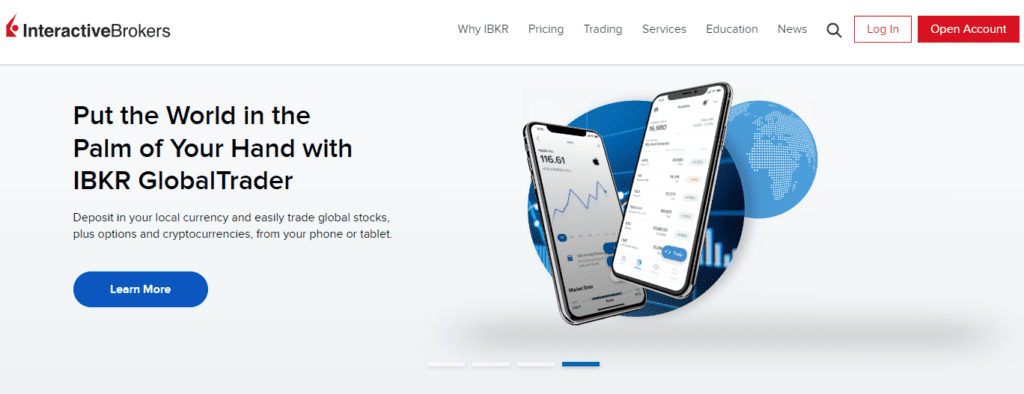
Interactive Brokers is a well-established and highly reputable online brokerage firm, founded in 1978. Over the years, it has built a robust platform that caters to active, advanced traders, and investors who are looking for broad access to a wide range of investment options.
Interactive Brokers provides an extensive selection of tradable securities, including stocks, options, futures, forex, bonds, ETFs, and mutual funds across 135 markets in 33 different countries. This impressive reach has made it an appealing choice for both domestic and international traders.
The company has invested significantly in its trading platforms, providing sophisticated features that meet the needs of professional traders. Their flagship platform, Trader Workstation (TWS), is a global trading system which allows traders to monitor markets and execute trades from a single screen.
Interactive Brokers is regulated by several top-tier financial authorities, including the Securities and Exchange Commission (SEC), the Financial Industry Regulatory Authority (FINRA), and the Commodity Futures Trading Commission (CFTC), ensuring a high level of security and transparency for its customers.
Advantages
- Superior technology and trading platforms
- Offers extensive research tools
- Broad product offering
- Highly regulated
Disadvantages
- High inactivity fee
- Complex pricing structure
Withdrawal And Fees Of Interactive Brokers
Interactive Brokers operates on a tiered pricing model that charges fees based on the trading volume. For stocks, ETFs, and warrants, the maximum per order ranges from 0.0035 to 0.0005 USD per share depending on the monthly volume. For options, futures, and futures options, the cost per contract reduces as the volume increases.
Interactive Brokers provides one free withdrawal request per month. After that, a fee is applied to subsequent withdrawals, which varies based on the method of withdrawal and currency. For example, in the US, an ACH withdrawal is free, while a wire withdrawal incurs a fee of $10.
There are also certain non-trading fees to be aware of. Interactive Brokers charges an inactivity fee if the account balance is less than $2,000 and doesn’t generate at least $20 in commissions per month. The fee is equal to $20 minus the commissions paid that month.
Given the complex nature of its fee structure, it’s advisable to thoroughly understand all potential costs associated with trading via Interactive Brokers. Always check the broker’s website or contact their customer service for the most accurate and updated information.
#5 BlackBull Markets
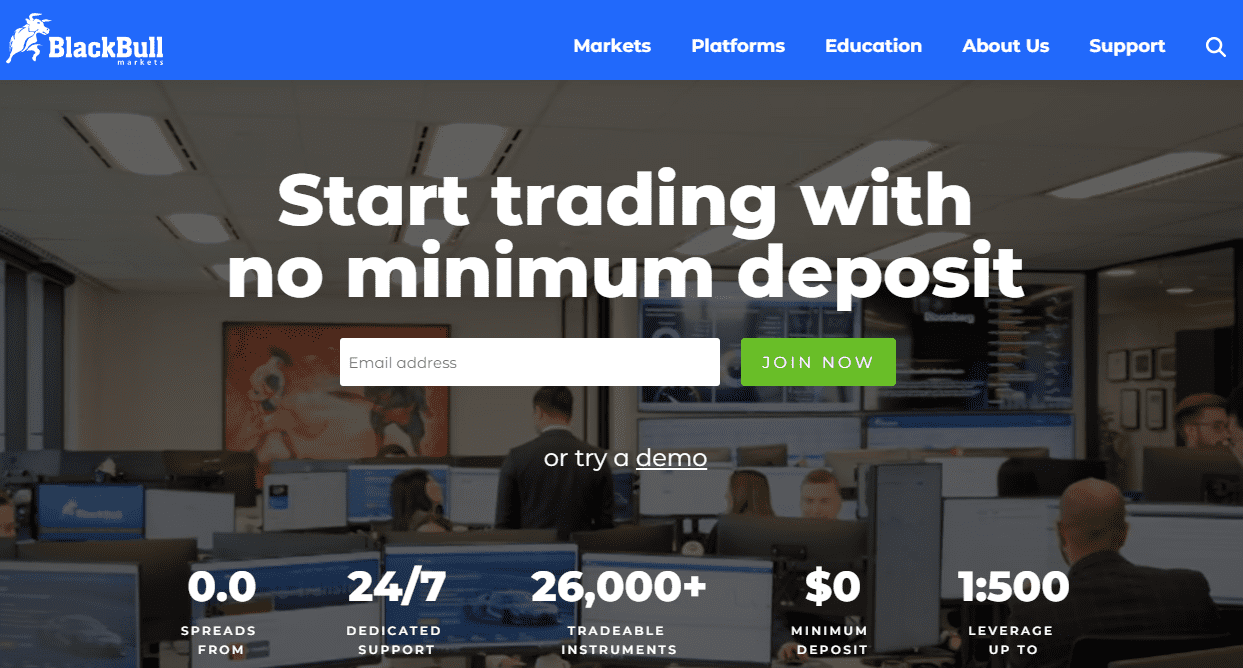
BlackBull Markets is a New Zealand-based online ECN forex broker that was established in 2014. It is known for offering an institutional-grade trading environment to retail clients, featuring fast execution speeds, raw ECN spreads, and high-quality customer service.
BlackBull Markets offers access to a broad array of financial instruments across forex, commodities, indices, and metals. To cater to the varying needs of traders, the broker provides three types of accounts – Standard, Prime, and Institutional, each with different features and services.
The broker utilizes the popular MetaTrader 4 platform, known for its reliability, user-friendly interface, and advanced charting tools. Traders can also benefit from BlackBull Markets’ proprietary client portal, which allows for seamless account management and comes with an array of features including one-click deposits and withdrawals, live chat support, and account analytics.
BlackBull Markets is regulated by the Financial Markets Authority (FMA) in New Zealand, which ensures that they adhere to strict financial standards, offering peace of mind to traders regarding the safety of their funds.
Advantages
- Offers true ECN trading. This ensures traders receive real-time prices and faster execution speeds, leading to lower chances of slippage.
- Regulated by the New Zealand Financial Markets Authority, which adds a layer of security and credibility to their operations.
- Supports MetaTrader 4 and MetaTrader 5, which are industry-leading trading platforms known for their robust features and user-friendly interfaces.
- Traders have access to a broad spectrum of financial instruments, including forex, commodities, indices, and CFDs.
- Offers some of the most competitive spreads and commissions in the industry, allowing traders to minimize their trading costs.
Disadvantages
- They are not as comprehensive as those offered by some other brokers.
- All accounts on BlackBull Markets use variable spreads, which can widen during major news events or periods of low liquidity.
- The range of non-forex assets, like shares and cryptocurrencies, is limited
Withdrawal And Fees Of BlackBull Markets
BlackBull Markets operates on a commission-based pricing model, with the exception of their Standard Account, which is commission-free but has a slightly wider spread. For the Prime and Institutional accounts, a commission is charged per trade but these accounts enjoy tighter spreads, which can be as low as 0.1 pips for the EUR/USD pair.
In terms of withdrawal fees, BlackBull Markets doesn’t charge any fees for credit card withdrawals. However, there’s a $5 fee for domestic bank transfers and a $20 fee for international bank transfers. It’s important to note that while BlackBull Markets does not charge deposit fees, charges from intermediary banks may apply.
The broker doesn’t charge an inactivity fee, but dormant accounts (accounts with no trading activity for six months) may be archived.
Given that fees can vary and change over time, it’s recommended to check BlackBull Markets’ official website or get in touch with their customer support to get the most accurate and up-to-date information on their fee structure and withdrawal procedures.
#6 FP Markets
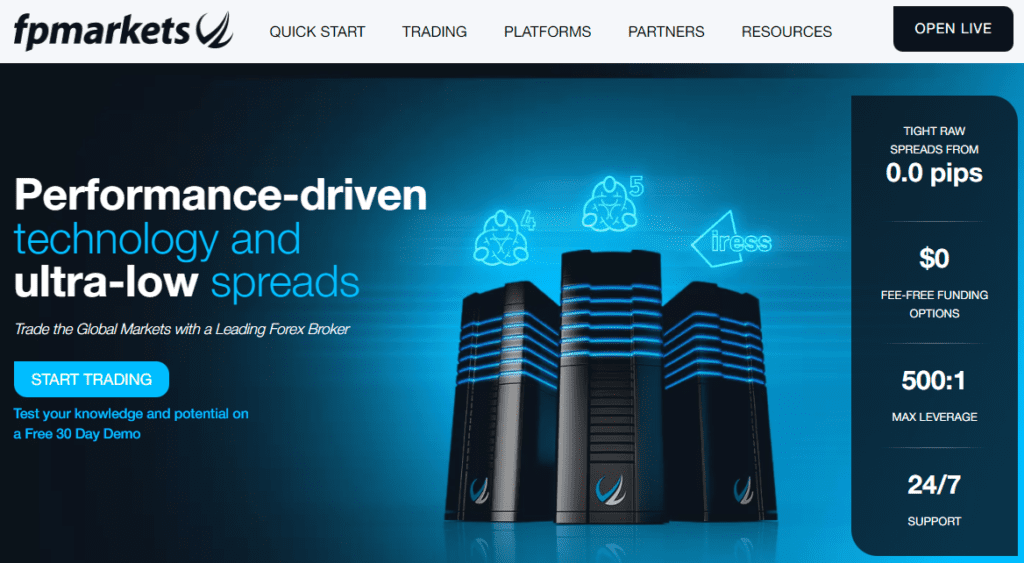
First Prudential Markets, more commonly known as FP Markets, is an Australian forex broker established in 2005. It has garnered a solid reputation in the financial industry due to its blend of reliable technology, diverse product offering, and commitment to providing excellent customer service.
FP Markets provides its clients with access to a comprehensive range of trading instruments across Forex, equities, metals, commodities, indices, and cryptocurrencies. It caters to a wide spectrum of traders by offering a selection of account types, including the Standard (spread-only) and the Raw (commission-based) accounts.
The broker utilizes both the MetaTrader 4 and MetaTrader 5 platforms, renowned for their advanced trading features, as well as the IRESS platform, which is more tailored for equity and CFD trading. All these platforms are available on desktop, web, and mobile devices.
FP Markets is regulated by the Australian Securities and Investments Commission (ASIC) and the Cyprus Securities and Exchange Commission (CySEC), ensuring a high level of transparency and security for its clients’ funds.
Advantages
- Regulated broker
- Range of account types
- Variety of trading instruments
- Tight spreads
Disadvantages
- High commission rates
- Multi-level verification process
Withdrawal And Fees Of FP Markets
FP Markets prides itself on its transparent pricing model. The Standard Account is commission-free with spreads starting from 1 pip, while the Raw Account has tighter spreads starting from 0.0 pips but includes a commission per lot traded.
One of the benefits of trading with FP Markets is that the broker does not charge any internal fees for deposits or withdrawals. However, it’s important to note that some payment providers may impose transaction fees, and international bank wire transfers may attract fees from both intermediary and receiving banks.
FP Markets does not charge any inactivity fees, which is a plus for those who do not trade frequently. But do note that the broker reserves the right to close an account that has been inactive for more than a year.
For the most up-to-date information, traders should always check the FP Markets’ website or reach out to their customer service to understand their fee structure and withdrawal process.
#7 FBS
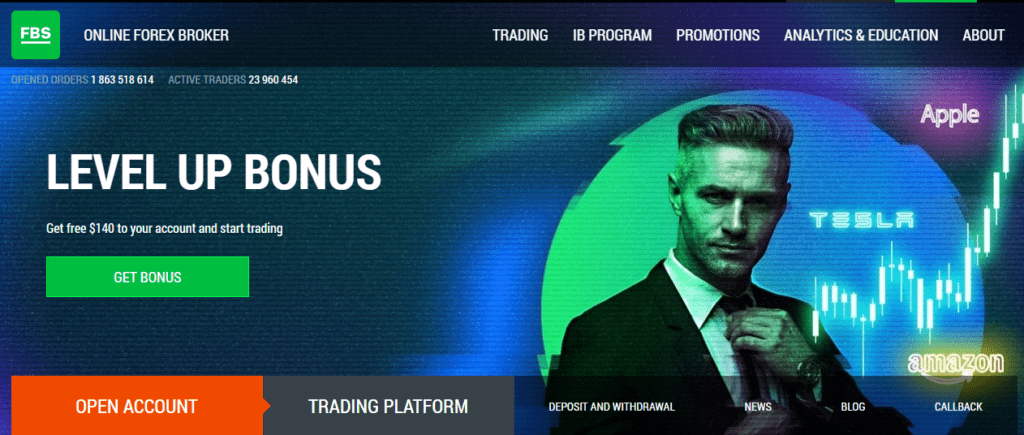
FBS is an international forex broker that has been in operation since 2009. The broker has quickly gained recognition in the global trading community for its comprehensive service offerings, client-centric approach, and commitment to transparent trading conditions.
FBS provides a wide range of financial instruments for trading, including forex, commodities, cryptocurrencies, stocks, and indices. The broker accommodates traders of all experience levels by offering several types of trading accounts, each tailored to different trading strategies and risk tolerance levels.
FBS utilizes the popular MetaTrader 4 and MetaTrader 5 platforms, providing clients with advanced trading tools and features, along with the capability to trade on the move using their mobile devices. Furthermore, FBS is known for its high-quality educational resources, including webinars, video lessons, tips, and analytical materials, making it a good choice for beginners.
FBS operates under the regulation of the International Financial Services Commission (IFSC) and the Cyprus Securities and Exchange Commission (CySEC), ensuring client fund safety and business transparency.
Advantages
- It offers negative balance protection, which means your account will not go into debt
- Regulated by multiple financial authorities, which guarantees high-level security for your investments.
- Offers a wide selection of trading instruments
- Excellent customer support
- User-friendly platforms with a variety of tools and resources for traders
Disadvantages
- Auto copy trading is not available
- No PAMM accounts
- Not suitable for scalping or any other form of short-term trading accounts
Withdrawal And Fees Of FBS
FBS employs a transparent fee structure. Depending on the account type, they offer both spread-only and commission-based pricing. For instance, the Standard Account is commission-free with spreads starting from 0.5 pips, while the ECN Account features spreads from -1 pip but charges a commission.
FBS generally does not charge deposit fees, but withdrawal fees vary depending on the payment method. For instance, for bank wire transfers, the broker charges a $30 fee. It’s crucial to note that your bank or e-wallet provider may also impose a charge.
FBS applies an inactivity fee of $5 per month if an account is dormant for six months or more. However, this is only applied if the account balance is greater than zero.
As fees and charges may change over time, traders should always refer to the official FBS website or consult their customer support for the most current and accurate information about their withdrawal procedures and fee structure.
#8 FXPro
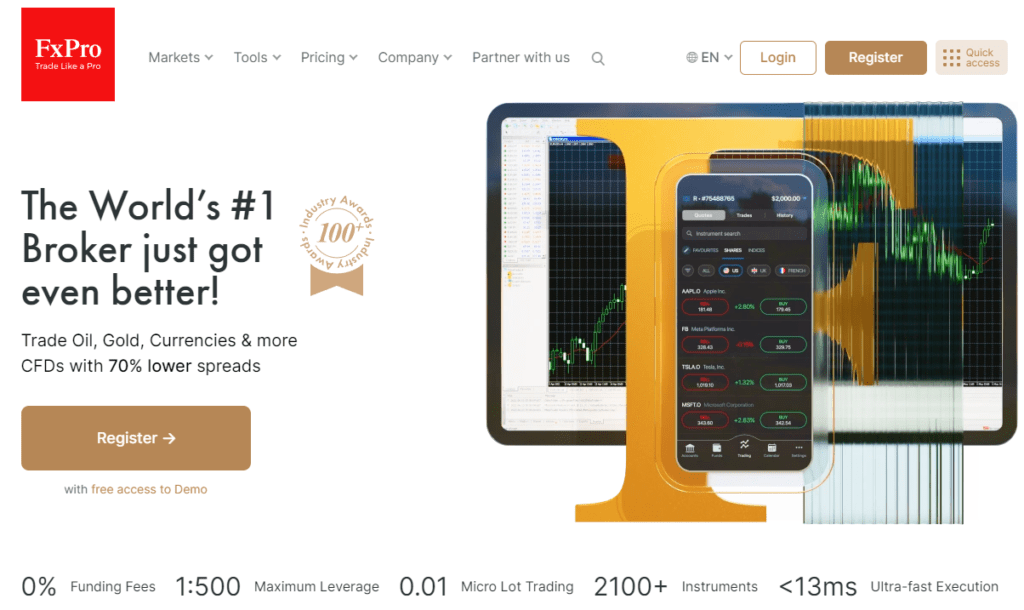
FXPro is a leading online broker that has been in operation since 2006, with a significant global presence and a client base that spans across more than 170 countries. The broker specializes in offering Contracts for Difference (CFDs) on Forex, futures, indices, shares, spot metals and energy commodities.
One of the unique features that set FXPro apart from its competitors is the multitude of trading platforms it offers to its clients. This includes MetaTrader 4, MetaTrader 5, cTrader, and its own proprietary FxPro Edge platform. Each of these platforms caters to different types of trading styles, strategies, and preferences.
Regulated by top-tier authorities such as the Financial Conduct Authority (FCA) in the UK, the Cyprus Securities and Exchange Commission (CySEC), and the Dubai Financial Services Authority (DFSA), FXPro is well recognized for its commitment to maintaining a high level of trust and transparency in its operations. Moreover, the broker places a strong emphasis on providing quality customer service and access to an array of educational resources, making it a great choice for both beginner and experienced traders.
Advantages
- Transparent pricing structure
- Regulated by the CFTC
- Low minimum deposit
- User-friendly platform
Disadvantages
- Limited product offerings compared to other brokers
- Limited customer service hours
Withdrawal And Fees Of FXPro
FXPro’s pricing model is based on spread and commission, depending on the type of account and platform you choose. The broker offers four different account types – MT4, MT5, cTrader and FXPro Edge, each with its own unique fee structure.
For instance, with the MT4 account, FXPro earns its revenue from the spread with no additional commission. The spread on the EUR/USD pair is variable, starting from 1.6 pips. On the other hand, the cTrader account operates on a commission-based system where the commission is $45 per $1 million traded, and the spreads start from 0.2 pips.
In terms of non-trading fees, FXPro charges no deposit fees and offers free credit card withdrawals. However, a small fee is charged for withdrawals through other methods such as bank transfers. The broker also charges an inactivity fee of $15 (or currency equivalent) per month after 12 months of account dormancy.
Always ensure to check the latest fee details on the FXPro website or through their customer support to avoid any surprise costs.
#9 OANDA
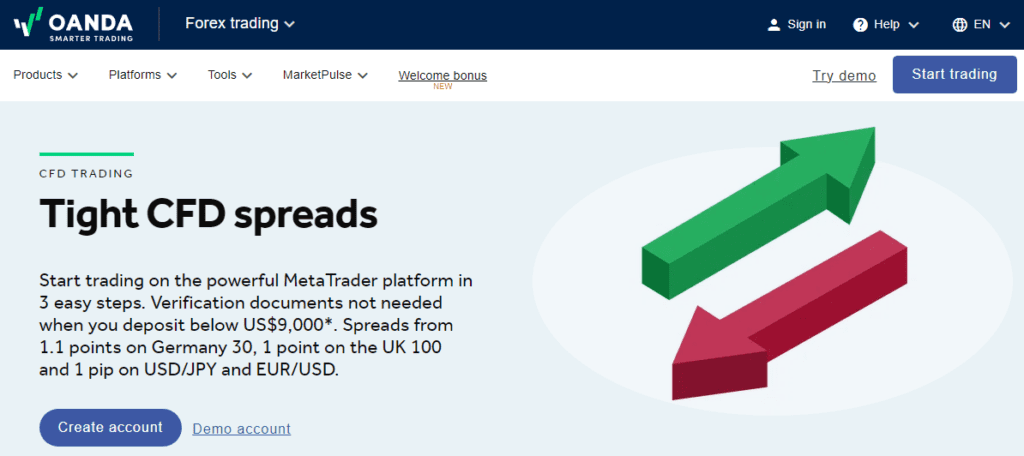
OANDA is a pioneering forex and CFD broker with a global presence and a long-standing history dating back to its establishment in 1996. Known for providing robust forex trading solutions, OANDA has won the trust of traders worldwide with its transparency, technological innovation, and commitment to customer satisfaction.
OANDA offers a comprehensive selection of trading instruments including forex pairs, indices, commodities, metals, bonds, and CFDs. It caters to traders of all skill levels, from beginners to advanced traders.
The broker uses the highly acclaimed MetaTrader 4 platform, as well as their proprietary fxTrade platform which was the first fully automated forex trading platform when it was launched. These platforms are packed with advanced trading features, analytical tools, and they are available on web, desktop, and mobile devices for trading on-the-go.
OANDA is regulated by several top-tier financial authorities, including the U.S. Commodity Futures Trading Commission (CFTC), the National Futures Association (NFA), and the Financial Conduct Authority (FCA) in the UK, thus ensuring a high level of security for traders.
Advantages
- Very low minimum deposit of $1
- Multiple trading platforms, including a mobile trading app and their proprietary trading software
- Availability of passive income investments with Fx Manager service
- Wide range of trading instruments
Disadvantages
- High minimum spread value
- ETFs are not tradable
- Lower leverage compared to similar brokers
Withdrawal And Fees Of OANDA
OANDA operates on a spread-only pricing model, with no commission fees on trades. The broker offers competitive spreads that vary by account type and market conditions.
In terms of withdrawal fees, OANDA offers one free monthly withdrawal for clients. Any subsequent withdrawals within the same month attract a fee. The fee depends on the withdrawal method: for example, a bank wire transfer withdrawal incurs a fee of $20 in the US.
OANDA charges an inactivity fee of $10 per month for accounts with no trading activity for 12 months, but only if the account balance is above zero.
It’s important for traders to note that OANDA’s fee structure can change, and as such, it’s always recommended to review the most up-to-date information on their website or contact their customer service for precise details.
The Forex Trading Situation In The US
To explain the complexity of the forex trading situation in the US and how radically different it is from other places, let’s first examine the norm in the EU.
More relaxed regulatory laws in Europe guarantee brokers the right to offer their services to traders across the EU, as long as they receive a license from any European regulators.
What it means is that a broker that’s regulated by the Cyprus Securities and Exchange Commission (CySEC), for instance, can accept traders from countries that identify as members of the European Union.
Like we said earlier, the rules are wildly different in the US because US-based forex brokers play by more stringent regulations. US clients are off-limits to brokers with an EU license. So, brokers willing to operate in the US must first get the required license from the National Futures Associated (NFA) and be prepared to face stricter regulations and harsher punishments.

The Dodd-Frank Act
Recent forex traders in the US may have found themselves wondering why the regulations are so much stricter for American brokers. Here’s the reason.
The Dodd-Frank Act Wall Street Reform and Consumer Protection Act was signed into law in 2010 by then-President Obama. The act became necessary after scores of traders suffered immense losses to financial institutions and brokers. The new act set a higher threshold for brokers, revolutionized the space, and encouraged financial institutions to be more transparent and accountable.
Predictably, many retail traders and brokers, unable to cope with the new reality, left the country, changing the outlook of the American retail scene profoundly. Nowadays, only a limited number of brokers operate in the UK. It’s for this exact reason that there’s a shortage of forex brokers accepting US clients.
The Enforcers: The CFTC And The NFA
The CFTC and NFA are responsible for the enforcement of this law and the regulation of the US forex market.
Forex brokers must first register with the CFTC to operate in the United States. Not only do forex brokers based in the United States have to register with the CFTC, but non-US-based forex brokers can also do so if they want to serve US clients.
The NFA is a division of the CFTC that administers regulatory programs to protect the integrity of the Forex market, and US Forex brokers must register with the NFA. The NFA’s mission is to ensure that individuals and businesses involved in the financial industry in the United States follow fair and ethical business practices.
Both organizations collaborate to ensure that member US forex brokers ’ activity complies with their rules. In the event of a consumer dispute, the NFA and the CFTC will judge the case the way they see fit and recommend and enforce punishment.
FAQs
Several off-shore forex brokers still accept US clients. Here’s a detailed list of them:
- 1Billion Forex
- 1Broker
- AAFX Trading Company
- AL Trade Inc
- ATC Brokers
- ATS Markets Global
- BuzzFX
- Capital Street FX
- Coinexx
- DV Markets
- Eagle FX
- Evolve Markets Ltd
- FinFX
- Forest Park FX
- Forex Broker Inc
- com
- Fullerton Markets
- FX Trading Pro
- FXChoice
- FXGlory
- FxPlayer Ltd
- GAIN CAPITAL
- Interactive Brokers
- LMFX
- LQDFX
- Nova FX Trading
- OANDA
- PaxForex
- PCM Brokers
- Profiforex
- TD Ameritrade
- Turnkey Forex
- Uniglobe Markets



